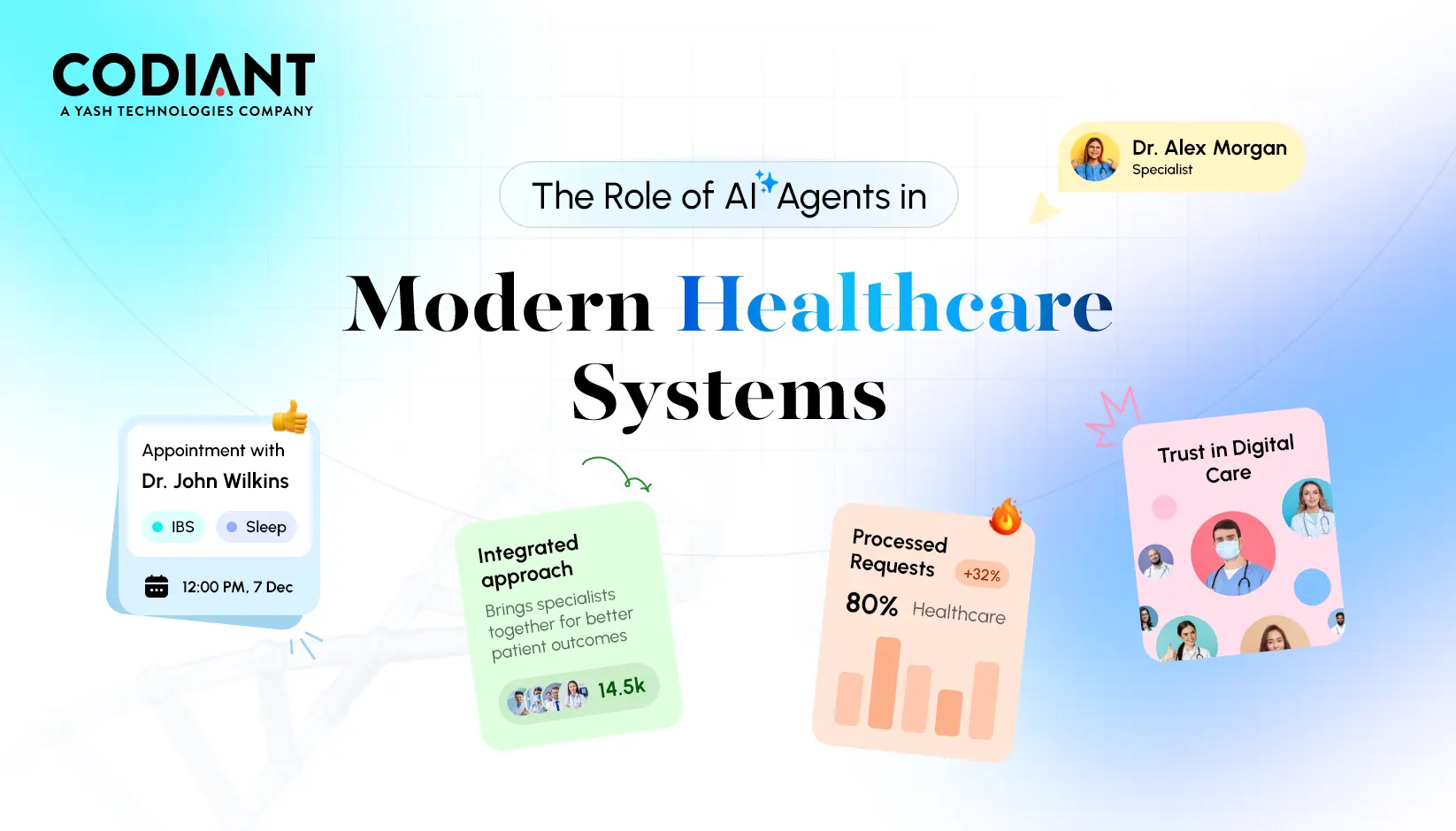How Advanced BI Tools Help in Decision-Making
Table of Contents
Subscribe To Our Newsletter

For informed and accurate decision-making, companies are nowadays heavily relying on data. To deduce into right conclusion advanced Business Intelligence tools are used to process and transform raw and unstructured data into structured form.
The BI tools follow the process of analyzing and presenting the data in a human-understandable form and provide answers to varied questions, such as how the business progress is going and what are the loopholes where the business is lacking, and for that what strategies can be integrated to improve the business.
Business Intelligence tools are also used by experts for data mining. So, let’s learn in detail how advanced BI tools help in decision-making, but before that let’s first understand the term Business Intelligence (BI).
What is Business Intelligence (BI)?
The primary goal of Business Intelligence is to deliver data-driven decisions to the users to gain insights into varied aspects of the operations carried out in an organization.
In simpler words, Business Intelligence is the process of fetching, organizing and analyzing data for an organization to learn about a variety of business aspects and make informed decisions. It covers a wide range of technologies and processes to organize and analyze the data and the way to report all the findings.
Business Intelligence is used to understand the previous performance of the company and the basics behind its performance. An advanced BI tool strategy prioritizes;
- Analysis of self-service flexibility
- Handle data on reliable and trustable platforms
- Empower business users
- Quick understanding and data analysis
An organization needs to understand how to use the data from the initial stage to finish to execute a successful BI strategy.
1. Data Collection
A business must understand how and through which medium they can extract a range of data from customers and visitors. Apart from that, how the collected data can be organized in a meaningful manner and analysed to deduce results.
2. Data Storage
For effective utilization of varied data, it is important to store the data properly with tools like SQL Database. The data storage tool should be advanced and easy to update, which ensures easy and reliable access of the organized data by the stakeholders.
3. Data Analysis
The BI tool studies the data and analyses it to answer the questions, such as the past and present history of your company, along with what are the reasons for the current performance of the organization.
4. Data Reporting
All the detailed research and study of data will make no sense if the findings are not shared accurately with the stakeholders and the decision-makers. The BI should convey data and insights in an easy-to-understandable form with minimum text, which helps the reader to quickly conclude over right decisions.
How Do Business Intelligence Solutions Contribute to Informed Decision-Making?
1. Real-Time Visualization
The user can access data and results in a very appealing and interactive form by using the business intelligence tool. Apart from that, access company-level results with Power BI services. On these tools, the data can be accessed anytime and the user can update it in real-time which ensures the accurate and instant delivery and accessibility of the data.
The instant data update allows to deduce real-time results and make intelligent decisions, as the business demands.
2. Manage and Control Varied Data
Business operations and decisions rely on a diverse range of data. To study those data and for marketing analytics, several tools were used. As a result, the companies have to experience inefficiencies and shortcomings in handling their business and strategizing future processes.
But with Power BI, companies can easily and accurately gain insights from the collected data. Those insights can help you to take the right decisions and remain informed in advance about your brand’s performance.
3. Generate Reports with Valuable Insights
Report preparation and sharing is a crucial part of every business. Usually, businesses prepare reports for various purposes ranging from inventory management to accounting to sales. Every department prepares its individual report to maintain and present the current business condition in multiple forms.
Business Intelligence consulting service extend their assistance to enterprises in detailed report preparation, which helps to share valuable information about the company’s sales, revenue, inventory, marketing, past performance, and more.
4. Data Visualization to Study Reports Easily
The data visualization tools are quite convenient and easy for employees to work with and barely require any training to operate them. The purpose of using such tools is to present the data in an organized, simple and easily readable manner, such that the viewer or the reader can understand it quickly.
The employees can update the features available on the dashboard by using drag-n-drop option and update the file in real time. This helps the reader to study and analyze the various factors that could affect the overall performance of the business. Moreover, all this can be done without much effort.
5. Unlock the Worth of Unstructured Data
Unstructured data is stuffed with a variety of data, thus in the traditional method the businesses lack the aspect to explore all the varied data at a time and work on it. Rather, the organizations have to work with structured data through traditional tools, which hampers the capability of deducing in-depth insights from data.
Advanced business intelligence software can help derive insights from data that has been not processed. To find a pattern and trend in those data, these tools integrate advanced levels of Machine Learning algorithms. These patterns and insights will help your organization to understand the market trends and get ready for what is about to come.
6. Track Daily Progress for Better Performance Management
In any organization, the performance goals are different for each resource as per their hierarchy i.e. job roles and responsibilities. Employees have their specific individual targets, and departments comparatively have big goals to achieve, whereas the company has much larger and more complex goals that can only be achieved after the successful completion of the task by each individual and group.
To do so requires detailed and accurate progress tracking of every employee. For that, Business Intelligence tools help SMEs to track each employee’s progress and even understand the team’s progress as well. Overall, such details help enterprises to monitor and upgrade their overall performance, as per requirement.
All the progresses can be studied and analysed in the graphical report form with the help of BI tools that support organizations to make quick decisions and even avoid any mistake before things become out of control.
7. Track Real-Time Sales Progress
It is a very important job of business intelligence service providers to generate and increase awareness about advanced business processes and markets.
If businesses are unaware of the opportunities and the technologies then how can they avail it for their best and gain higher market share? Thus, Business Intelligence automation help management to remain aware of new market trends and remain ahead to grab the most appropriate opportunity without any delay.
Additionally, to maintain progress and stay updated every time, it is also important to be aware of the most suitable targets and the negative things as well, so you can avoid those before things get worse.
8. No More Guesswork
When you can access hard facts and figure to streamline your business operations and elevate the entire organization’s ROI, then why need to compromise with it?
As the BI tools can track the real-time progress of each employee and can save you from committing any business disaster, then there is no need to take risks. The business intelligence automation software can generate accurate, detailed and meaningful reports and update it with real-time data.
This will help your business to make the right decisions based on facts rather than going with any guesswork. A small mistake or a wrong decision could be a disaster for your business and may even lead to losses of millions.
9. Optimized Usage of Valuable Resources
To become a profitable business, it is a must for the organization to use the available resources at their best and avoid wastage of same. It will help to figure out the worth and availability of each resource and optimize the best usage of limited resources.
For instance, in any emergency or during a critical situation, Business Intelligence tools can help your organization to pool the available resources or find an alternate method/work to sustain itself into the market. The Business Intelligence and Data Analytics generated reports support liquidity-based decision-making.
10. Streamline Business Operations
Business automation is a convenient process to streamline operations. Usually, businesses have to deal with recurring tasks, but with automation, SMEs can avoid human errors and shorten the product life cycle. Business intelligence technology can help businesses to streamline their varied operations and properly align them to minimize time and resource wastage.
Business automation ranges from sourcing raw materials to delivering the final product to the end user and also improving the user experience. To make all this possible and easier, Business Intelligence tools can track and analyze every step and progress carried out in the business.
BI tools ultimately promote the best decision-making by eliminating any manual errors, duplication and automating recurring tasks, which also promotes product development, deployment and other related processes.
Conclusion
In today’s business world, organizations mostly rely on a huge amount of data from multiple sources. Thus, if the data is not used appropriately, then it could cost a lot to the business – ranging from wrong business decisions to revenue losses. But handling such huge data manually is a tedious process and causes complications, whereas, with Business Intelligence technology, enterprises can do so effortlessly and can easily deduce results from the valuable insights.
With Business Intelligence different technologies can be integrated, such as Artificial Intelligence and Machine Learning. It will not only optimize the business process and data but also can automate everything to achieve better results.
Codiant is a team of experienced data analysts, data engineers, strategists, data scientists and machine learning experts. Our services also include data extraction to visualization to help enterprises make accurate use of Business Intelligence tools that are suitable for your industry standards and compliance. If you are looking for robust data analytics implementation strategies for your business, then connect with our business executives to take things ahead.
Frequently Asked Questions
BI tools are software applications that collect, process, and analyze large volumes of data from various sources to provide insights that aid in business decision-making.
BI tools offer interactive dashboards, charts, and graphs that transform complex data into easy-to-understand visual representations, enabling quicker comprehension and decision-making.
Yes, many advanced BI tools incorporate predictive analytics, using historical data and machine learning algorithms to forecast future trends and outcomes.
BI tools often include features for sharing reports, collaborative dashboards, and real-time data updates, allowing teams to work together more effectively on data-driven decisions.
While BI tools can benefit any data-driven industry, they are particularly valuable in finance, healthcare, retail, manufacturing, and marketing, where large amounts of data need to be analyzed for strategic decision-making.
Featured Blogs
Read our thoughts and insights on the latest tech and business trends
How Much Does It Cost to Build an eCommerce Platform in Australia?
- January 27, 2026
- E-commerce
In a Nutshell eCommerce development costs in Australia typically start from AUD $10,000–$25,000 for basic stores, while advanced or enterprise platforms can range from AUD $80,000 to $250,000+ depending on complexity. Shopify offers a lower... Read more
How Long Does It Take to Develop an App in 2026?
- January 21, 2026
- Mobile App Development
In a Nutshell App development timelines depend more on scope clarity than technology speed. Simple apps take 2–4 months; complex platforms often require 9–12+ months. MVPs typically launch within 6–16 weeks when features remain tightly... Read more
How AI Agents Transform the Healthcare Sector?
- January 19, 2026
- Artificial Intelligence
In a Nutshell AI agents in healthcare go beyond automation by acting autonomously, learning continuously, and orchestrating workflows end to end not just generating insights. Agentic AI shifts healthcare from reactive to proactive, enabling early... Read more




